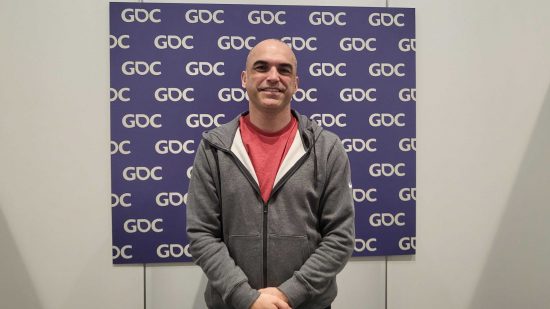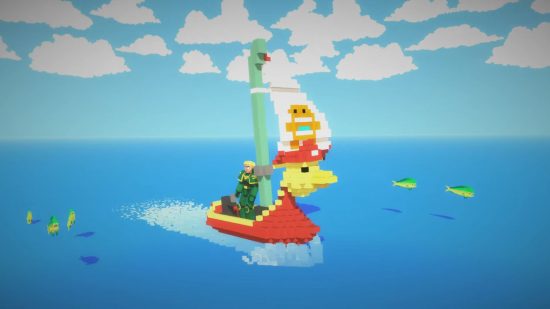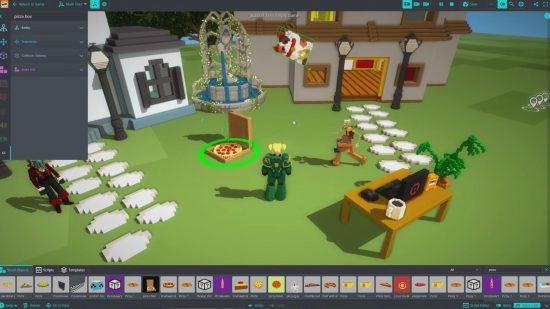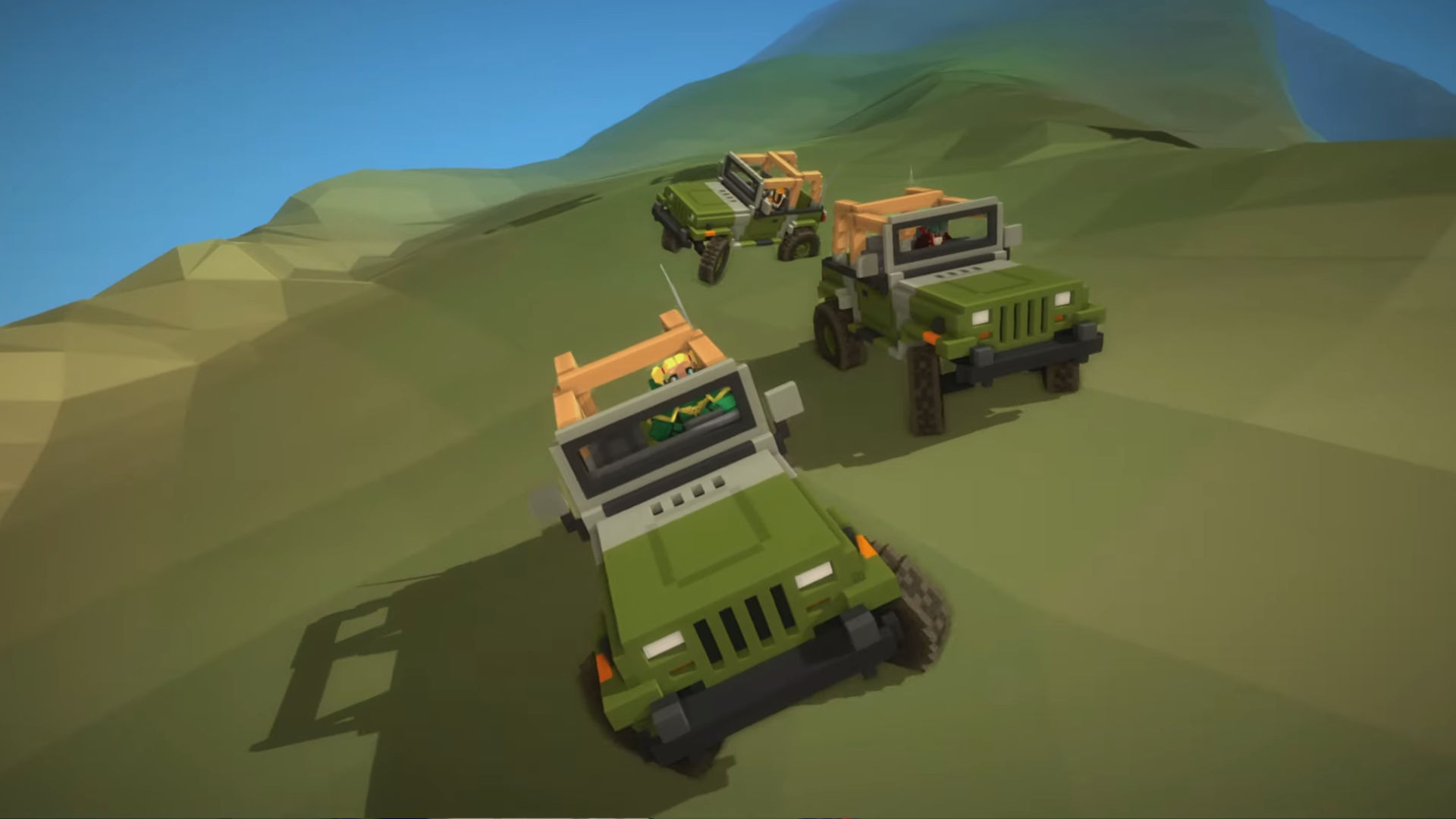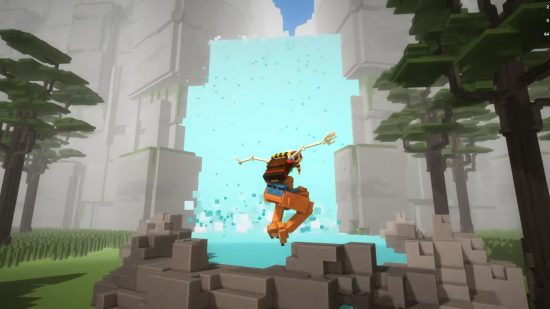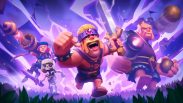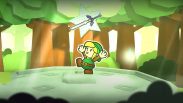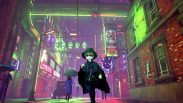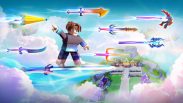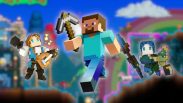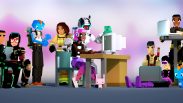We’re live at GDC 2023, covering all the biggest gaming news and speaking to all the studios about the exciting things we should be talking about. One of those exciting things is dot big bang, a voxel-based 3D game engine offering in-browser game development to rival Roblox and other creative platforms. So, when offered the chance to speak to Robert Anderberg, CEO of dot big bang’s studio ControlZee, we jumped at the chance.
Before we head into the highlights of our chat, let’s get a little extra context. dot big bang has been around since 2016, offering its growing community of creatives a way to create their own titles with intuitive game design tools. As a visual editor, it’s a fun-first approach to development, offering ease of use as a browser tool rather than a complex program you need to install and jimmy with to make even the smallest thing happen.
It’s also worth pointing out that Anderberg has his own fascinating history, with the now CEO of ControlZee having experience of work on other innovative online projects, most notably EVE Online and Second Life. He revealed these experiences taught him a great many things, one of which was the importance of online spaces, not just games but places where gamers can gather, chat, play, or in dot big bangs’ case, create.
“I think it’s interesting to think about what is a game and what is interesting to people, what they spend the time doing. Take Minecraft’s creative mode. A lot of time, when people are just building or creating something, or creating something in Big Bang, it doesn’t necessarily need to be a game. It can be a space, something that is valuable to them, like a recreation of their house or their school or their environment.”

Of course, when talking to developers of gaming platforms or creation tools aiming for mass markets, there’s always something of a blocky elephant in the room. Still, with the dominance of Roblox as a tool for independent creators, we had to ask if or how the platform’s success influences the development of dot big bang.
“Obviously, you know, Roblox has been really successful. I like to look at the things that they’re doing and say ‘oh, yeah, these things are really great. I should think about this’, but I think it pays in game development to not write off anything. I think you need to look at everything, take it all in and say what’s good about this” Anderberg tells us, before continuing with a not-so-obvious example outside of the creation-game-sphere.
“I remember, World of Warcraft was big. Still, people would not play it because they were like like, ‘well, it’s not my kind of game.’ I think to myself, ‘but you’re a game developer?’, so you should understand why 20 million people think it’s interesting. Just purely from the kind of objective perspective, not that you want to spend your time playing it. And then I played it, and I was like, ‘I understand. I see why this is interesting.’ There are thousands of people here, there’s this whole world of lore and story. So I want to just always soak these things in and then try and take inspiration”.
By complete circumstance, our chat with Anderberg arrived at a GDC event where other creative titles promise further innovation, from Fornite Creative introducing Unreal Editor tools to expand the popular battle royale title, to Roblox confirming more AI integration in future versions of the software. So, we asked the ControlZee CEO about the pixelated nature, or voxel if you want to be fancy, of dot big bang and if he had any concerns about choosing the visual style in a world that might be moving away from cubes.
“For us, voxels are not really a visual choice, it’s that they allow you to just model in 3D intuitively. It’s like, if you were going to build something from Duplo, you can visualise how to do it. You’re not asking yourself ‘how do I start?’ For example, If I was going to say to you, ‘okay, you need to mould a pot’. Okay, well, maybe you’re an expert potter, but it’s more likely you’d be trying to figure out what to do. But if I said, ‘build this out of Lego bricks’, you would be able to visualise how to do it.”
One thing that strikes me about this answer, and the overall approach to creating dot big bang through this interview and Anderberg’s conference talk, is that ControlZee is trying to create something as user-friendly as possible. It’s in browser, there are templates readily available, and as Anderberg said so eloquently in the last paragraph, the voxels inspire creation. The comparison to Lego is an apt one, as Lego is all about the joy of creation. Sure, it’s nice to see your finished castle with its working drawbridge and knight protectorate, but there’s nothing more exciting than first visualising your epic creation and planning how it comes together.
The user-friendly nature doesn’t stop with the creation tools, though. If you’ve spent any time on the internet in the last couple of years, you should be aware that one of the downfalls of Roblox is the questionable nature of some of its creator titles and how suitable they are for children, especially with kids being such a large part of the intended audience. We questioned Anderberg on how he and the team at ControlZee are making dot big bang a safe space for all.
“So we’ve made some explicit choices so far. I would say we’re much more on the Nintendo end of the scale. We don’t have any open-world voice chat, and the only way you can communicate at the moment is through emojis. That’s enough people to have an interaction, People often criticise Nintendo’s online strategy, but I think Nintendo are actually incredibly intentional about what they do. They just don’t allow people to communicate. You can’t have a problem if you cut it off.”
Still, despite playing it safe – and that’s not a criticism, not with some of the things I’ve heard reported on how players talk to each other on platforms like Roblox or Second Life – Anderberg does have an idea of how dot big bang could include some voice functionality in later versions. He tells us “there are a few companies coming through now where they’re doing game-focused auto-moderation. So what they will do is say, ‘oh, these two people are friends in the game. They play together very often.’ So if you say something to me, that might be slightly harsh, that’s probably normal banter, rather than it being offensive. Whereas if you say that to somebody else that’s that highlighted much more. So I think there is some opportunity there to do auto-moderation, but I also think basing off those friendships is the way to go. I think you have to build from the start, and that’s what we’ve done so far.”
Following on from the question of AI tools’ surging popularity, we also asked Anderberg if ControlZee plans on following the industry trends by implementing any AI in dot big bang. “So, I’m completely addicted to ChatGPT. I’ve got ChatGPT and I pay for it. I’ve been using it right, you know, bits of code, not in our project. But just to see what it does. I think, in general, I feel like AI is going to be an assistant for a long time. The main problem is, I’m a programmer, and I’ll say ‘write this code’ and it will just make things up. It just makes up APIs that don’t exist. It looks like a good API that should exist, but it doesn’t exist.” the CEO told us. Still, that doesn’t mean he’s writing AI off.
“From my perspective, I think the more interesting usage is what my nine-year-old son is doing with AI. He will say ‘I’m going to have this scenario, it’s going to have these nine characters from ancient Greece, and they’re all gonna have these backgrounds, and they know each other, and then we’re just gonna start talking to them, and you’re gonna respond to them as if they’re NPCs in a game.’ So, that kind of fluff, adding magic, and story content, I guess, I think, I think that’s where it really shines.” Anderberg says, continuing, “because it doesn’t need to be true. It doesn’t. I’m trying to get into math or facts, write code, you know, because code is like a machine, right? It’s like cogs that fit together. Whereas this is like fluffy magic.”
So far, we’ve mentioned a lot of what dot big bang does similarly to other titles, but before wrapping up, we had to ask Anderberg about one of the unique aspects of the creative platform, the idea of ‘remixing a game’. Essentially, remixing allows you to enter a game, and providing the permissions are open, you can make changes to suit your own sensibility. Imagine jumping into Resident Evil and changing it so that the zombies all look like your little old grandma. Still, the CEO puts it better.
“All of the games are connected to the same set of resources, and everything can be used to remix and kitbash together. I think that’s really important because it allows people to get started without fear. You can take a game that you really love, and you can go, ‘oh, I’m gonna just make a little tweak, maybe just scale this thing up, just experiment’ you know, without too much fear. And that, again, gets back to allowing creators to have this super easy beginning and easy ramp into something”.
From our questions, it’s clear that dot big bang has a core ethos, to deliver a customisable online utopia free of toxic exchanges and convoluted creative tools. It’s delivering, too. Just from a quick look at the official YouTube page, you can see this ethos spread across all departments, with the team at ControlZee sharing countless videos explaining how to engage with the tools at your disposal. This was apparent both during our chat with Anderberg and during his contribution to the panel of The Future of Play – one you should definitely check out from the Main Stage Wednesday stream on the GDC Twitch account.
Ultimately, dot big bang represents a future that so many of us, at least those of us in games media, want to see. A future that truly puts users first, matching Nintendo-style limitations to keep away any malicious in-game intent with software tools that, given the spotlight, could easily rival Roblox and other creative platforms. So, why not give it a try? ControlZee made it for you, after all.
For more from our time at GDC, check out our Omega Strikers interview with Odyssey Interactive, a Dinosaur Polo Club interview with the studio founders, and a King Games interview with the Chief Technology Officer Steve Collins.
